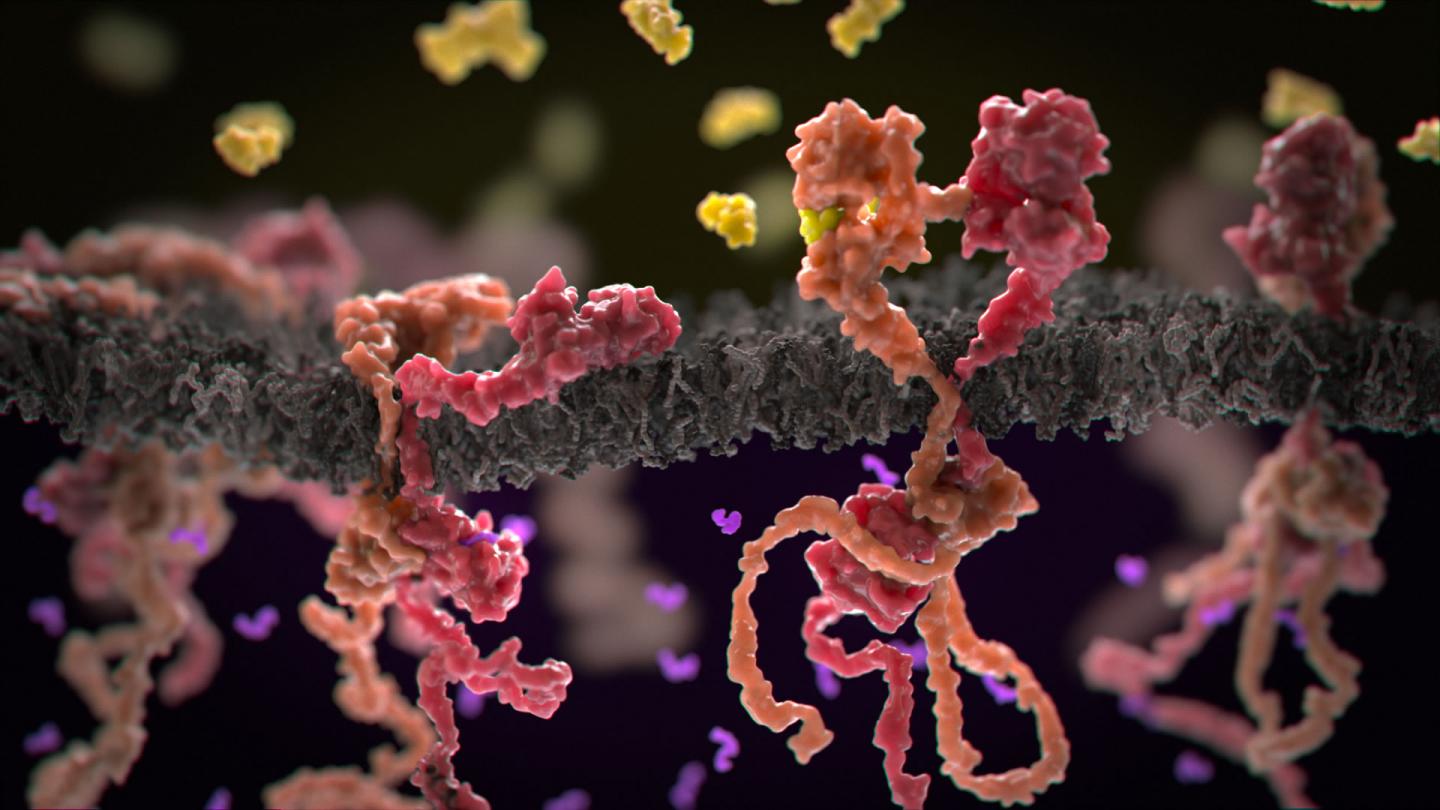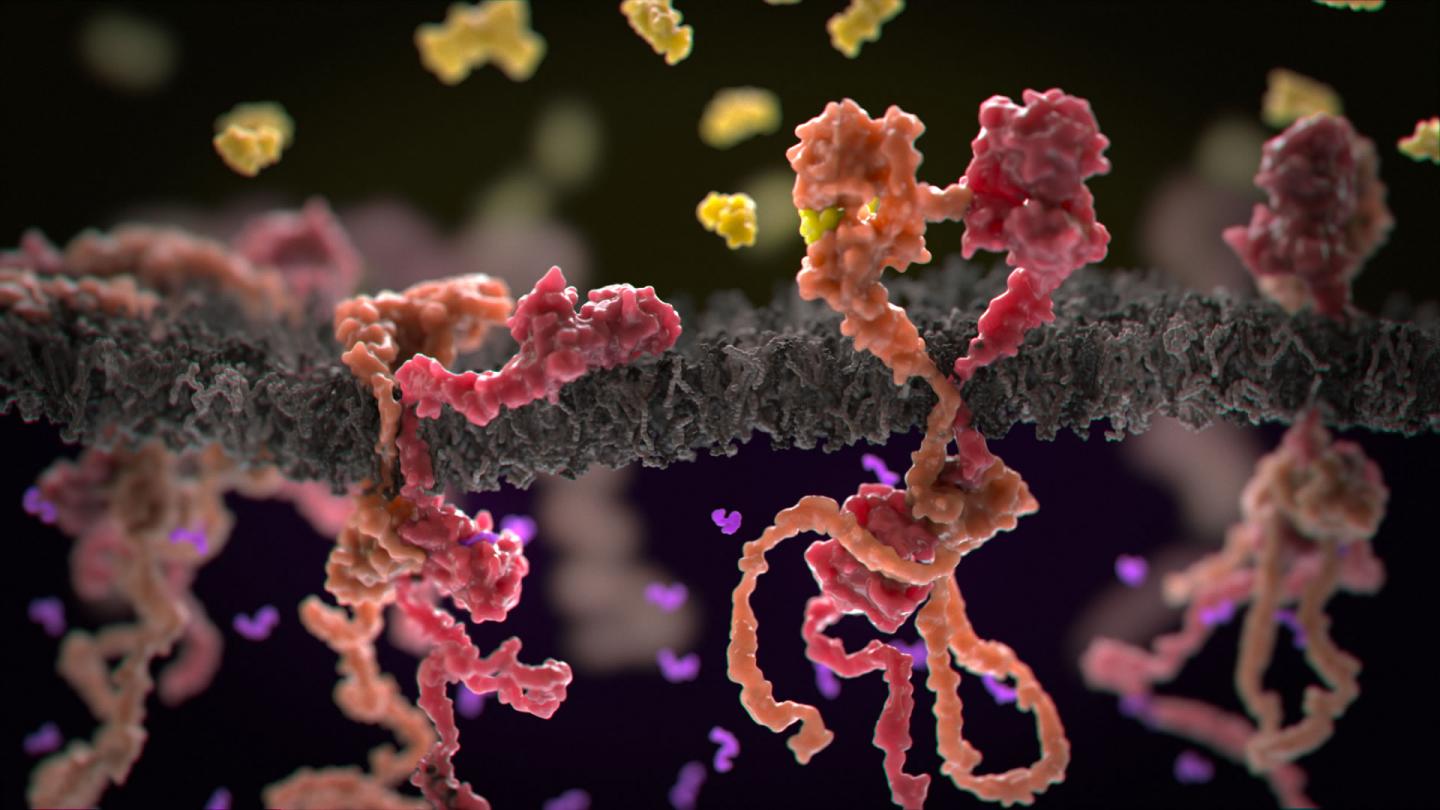
Credit: Phospho Biomedical Animation
The breast cancer drug lapatinib which is designed to shrink tumours can sometimes cause them to grow in the lab, according to a new study published in eLife. By understanding the molecular basis of this phenomenon, scientists hope that their findings will lead to safer treatment decision-making and drug design in the future.
Lapatinib is used in combination with other cancer drugs and chemotherapy to treat patients with a particular type of advanced breast cancer, but failed clinical trials as a stand-alone treatment.
Researchers at the Francis Crick Institute, King's College London and Barts Cancer Institute, Queen Mary University of London, have shown that lapatinib itself can actually cause breast cancer cells to grow more rapidly in some situations, which might explain the disappointing outcome of the clinical trials.
Lead author of the paper, Dr Jeroen Claus from the Francis Crick Institute, said: "If certain breast cancer drugs can cause cancer cells to grow more rapidly in particular circumstances in the lab, we need to evaluate carefully if that might happen in subsets of patients as well. Determining these risk factors could help doctors decide which patients may benefit most from these drugs."
Around 20% of breast cancers are caused by a massive excess of a protein called HER2 (human epidermal growth factor receptor 2), which sends signals telling cancer cells to grow and divide. Lots of treatments for HER2 positive breast cancer work by switching off HER2 to make the cells stop growing or die. They can do this from outside the cell (antibodies such as trastuzumab) or inside the cell (kinase inhibitors such as lapatinib). Lapatanib is one of many kinase inhibitors used to treat HER2 positive breast cancers and HER2 is an important target for other existing and emerging breast cancer treatments.
Using a combination of biochemical, biophysical, and computer modelling tools, the team discovered that lapatinib causes HER2 receptors on cell membranes to pair up with a partner receptor called HER3. When you combine these inhibitor-induced HER2-HER3 pairs with naturally-occurring growth signals from outside of the cell, they can rearrange themselves into an active, signalling pair. In this state, the HER2-HER3 pair becomes very efficient at telling the cells to divide, more so than cells that haven't been treated with the drug.
Professor Peter Parker, joint senior author of the paper and Group Leader at the Francis Crick Institute and King's College London (KCL) said: "Although our study was in breast cancer cells, it gives us new insights into the nuts and bolts of what happens to HER2 when you try to block it and raises some interesting questions around how we should approach designing drugs against HER2 positive breast cancer in the future."
Professor Tony Ng, a clinician scientist heading the School of Cancer and Pharmaceutical Sciences at KCL, and joint senior author of the paper said: "In recent patient studies, HER2 targeted therapies that combined lapatinib with the antibody treatment trastuzumab successfully controlled HER2 positive breast cancers at first, but did not improve longer term disease-free survival. Our new findings could help us design future studies to improve combined HER2 targeted therapies."
Dr Justine Alford from Cancer Research UK, said: "By revealing surprising insight into the biology of HER2 and how this molecule may respond to certain drugs, this important lab research could guide future work into sophisticated new treatments that target HER2 in a more effective way.
"As many breast cancers are triggered by HER2, drugs blocking its action have become cornerstone treatments for these diseases and they've shown great success. But sometimes these treatments can stop working, so there is a pressing need to develop new drugs that can overcome this issue and help improve the outlook for these women."
###
Media Contact
Greta Keenan
[email protected]
44-203-796-3627
@thecrick
http://www.crick.ac.uk
Related Journal Article
http://dx.doi.org/10.7554/eLife.32271





